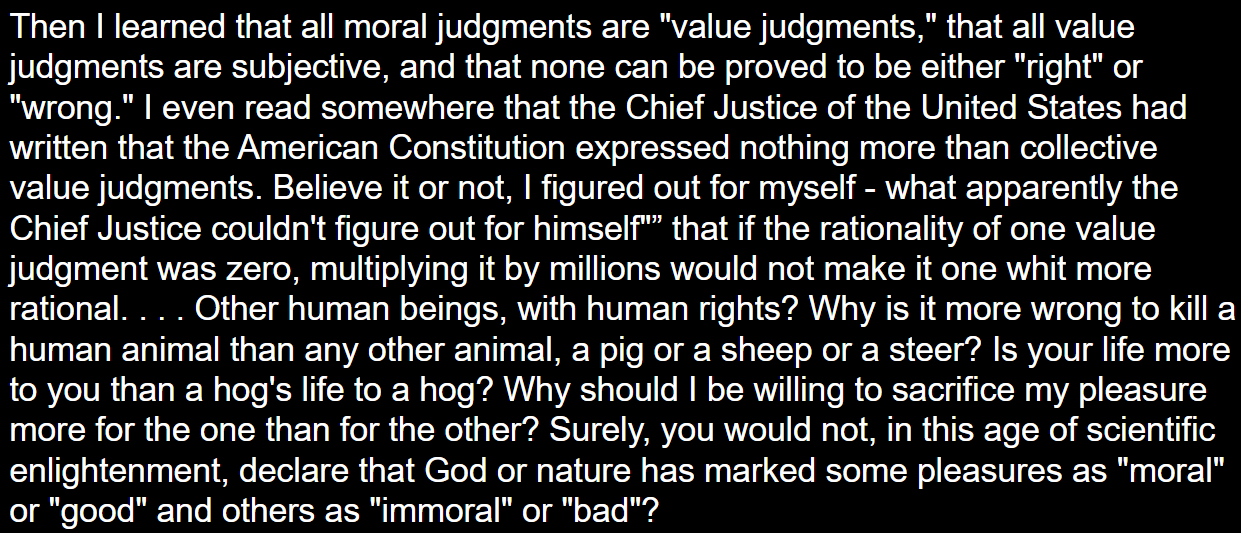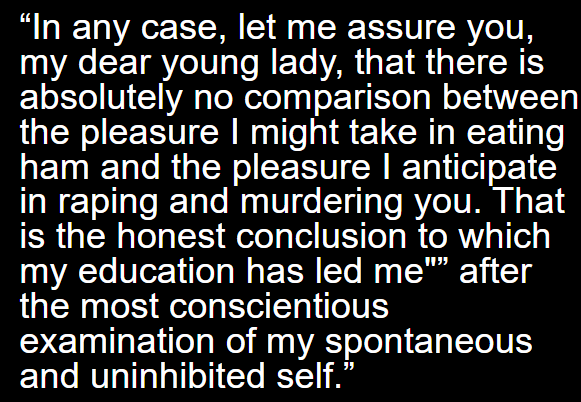B Skepticism About Morality
1/23
Earn XP
Description and Tags
1/30/25 Notes
Name | Mastery | Learn | Test | Matching | Spaced | Call with Kai |
|---|
No analytics yet
Send a link to your students to track their progress
24 Terms
Five Arguments for Being Skeptical about Morality
Psychological Egoism
Ethical Egoism
Subjective Relativism
Cultural Relativism
Error Theory
Psychological Egoism
Our sole motivation is the pursuit of self-interest
denies that we can choose the
interests of others as an end-in-itself
Ethical Egoism
We ought always to maximize our own self-interest
denies that we ought to choose the interests of others as an end in-itself
Subjective Relativism
Personal preference is the sole standard of right and wrong
denies that there is any objective basis for deferring to the moral judgments others
Cultural Relativism
The values of a particular culture are the sole standard of right and wrong
denies that there is any objective basis for regarding the values one culture to better than another.
Error Theory
There is nothing about which moral judgments are true or false
Psychological Egoism: Lincoln and the Pigs
Lincoln only saves the pigs to save his future self from having regret, not because he thought saving the pigs was the right thing to do
“I did it to get peace of mind, don’t you see?”
Psychological Egoists Explain Apparent Altruism
Argue that helping others is a means to an end, and that end is their own self-interest or well-being
Objections to Psychological Egoism: Lincoln and the PIgs
Lincoln says that he only helped pigs to protect his own “peace of mind”
but… the suffering of the pigs bothered him
If an egoistic person is one who only cares about himself, then Lincoln is not egotistic, since he cares about the suffering of the pigs
Always Egoistic v. Only Egoistic
Even if every human action is motived by self-interest, doesn’t mean that every human action is motivated ONLY by self-interest.
Example: Doctors and Nurses. What are their motives? Earning money? but also desire to save lives and the health of other people
Daniel Batson
Conducted empirical experiments and thought experiments
wanted to see whether egoistic or altruistic was more prevalent
concluded that some people act for the sake of other people’s interest (altruistic)
Ayn Rand (1905-1982): Ethical Egoism
The Virtue of Selfishness
Normative but not a psychological egoist
Doesn’t believe people always act to ma their self-interest
“The proper method of judging whether one should help another person is by reference to one’s own rational self- interest and one’s own hierarchy of values: the time, money, or effort one gives or the risk one takes should be proportionate to the value of the person in”
Ayn Rand (1905-1982)
“the libertarian argument.”
Shafer-Landau
moral duties have two sources: consent and reparation
“any duty to aid another comes form out voluntarily agreeing to accept that duty or from our violating someone’s rights and so owing a duty to repair the wrong I have done”

Ted Bundy
arguing that if moral values are purely subjective (based on personal or societal opinions), then there is no real basis for saying any action—even murder—is truly wrong
if morality is purely subjective and socially constructed, then any act—even killing—can be justified if someone desires it.

Ted Bundy
If morality is purely based on individual feelings, then no action—no matter how terrible—can be objectively condemned.
The quote implies that education and reason alone (without moral principles) do not necessarily lead to ethical behavior.
Moral Blindness
Inability to see or recognize something is morally wrong, even when it is obvious to others
Cultural Relativism
Idea that moral values and beliefs are shaped by culture, and what is considered "right" or "wrong" can vary from one society to another.
Things to consider when talking about values of a culture
People in power
The majority
Disenfranchised minorities
Committed Separatists
Listen to the voice of the suffering
J.L. Mackie’s Error Theory
Argued that moral judgement are false
false because the things that are said to be good or bad/ right or wrong do not have properties that they say they have
Can not place wrong/right, good/bad properties on human action
“You never can find it [e.g. wrongness] till you
turn your affection into your own breast, and find
a sentiment of disapprobation, which arises in
you, towards this action. Here is a matter of fact;
but it is the object of feeling, not of reason. It
lies in your self, not in the object.”
David Hume’s Sentimentalism
David Hume’s Sentimentalism
Says that “wrongness” is found within yourself, it’s what you feel is wrong or bad
Plato’s Myth of Gyges
Magical ring that can make you invisible
Plato says that people will do things that are immoral if they can get away with it
Aristotle’s thought on Myth of Gyges
Says that a virtuous life is the happiest life
By making yourself more moral you are making yourself more happy